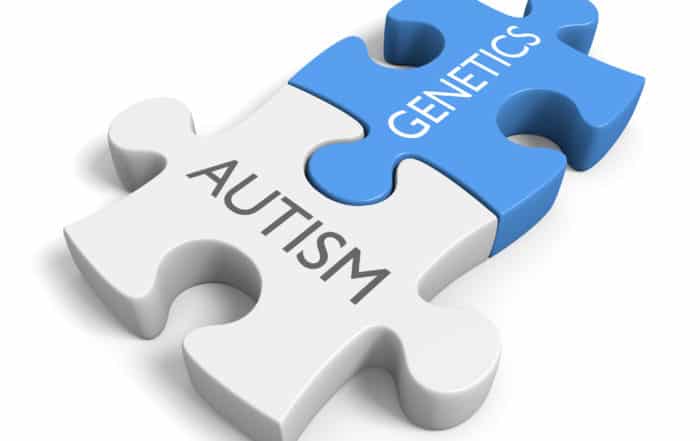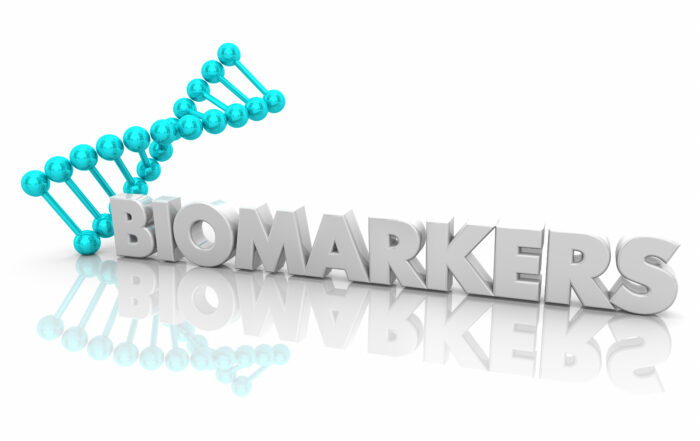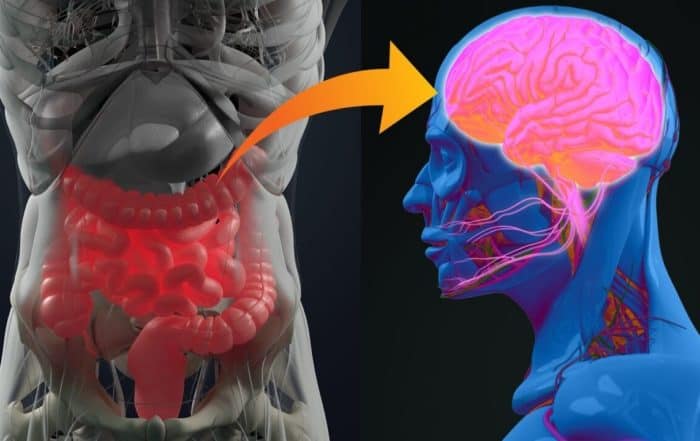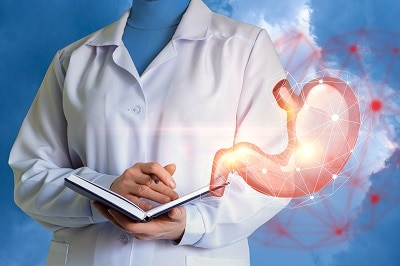Dr. Daniel Vogt, Ph.D., explores monogenic syndromes and what they can tell us about the underlying causes of autism. He describes signaling pathways critical in early development, highlighting the electrical nature of cell communication and function. The presenter explains how testing the impact of autism risk gene variations on cell signaling pathways can help us understand the roles and outcomes of specific genetic mutations in autism. Vogt presents recent research suggesting disruptions to cell circuitry in autism and highlights the need for research into the connection between cell communication and autistic behaviors. He provides thanks and acknowledgments before the Q&A.
Handouts are online HERE
In this webinar:
1:00 – Genetic causes of autism
3:00 – Critical signaling pathways
5:15 – Cortical interneurons
9:08 – Parvalbumin theory
13:05 – mTOR signaling pathway mutations
20:50 – MAPK signaling pathway mutations
27:35 – Electrical properties
32:40 – Conclusions
40:15 – Future research
44:00 – Q&A
Genetic causes of autism
Proteins associated with synapses and cellular signaling have been identified as genetic drivers of autism. Vogt and his research lab focus on cell signaling to identify links between events that occur on the cell surface and cytoplasm (inside the cell) (2:00). The speaker introduces two signaling cascades critical to cell growth, division and migration (3:00):
- mTOR (Mammalian target of rapamycin): leads to translational regulation; inhibited by known autism risk genes Pten in early development and Tsc1 in late development
- MAPK (Mitogen-activated protein kinase): leads to transcriptional regulation; inhibited by known autism risk gene Nf1 at early stages of development
Cortical interneurons (CINs)
To determine what, if any, mutations or effects are common across pathways, Vogt and colleagues study GABAergic cortical interneuron ratios in mice (5:15). Cortical interneurons (CINs) shape neural networks in the brain and originate from embryonic brain structures called the medial and caudal ganglionic eminences (MGE/CGE) (6:20). The speaker explains that the MGE develops around 70% of CINs via four major events:
- Cell proliferation (birth) and apoptosis (death)
- Cell migration across long distances to final targets in the brain
- Cell fate, or the acquisition of specific properties related to cell function
- Electrical properties used to communicate across the microcircuit synapses
Vogt describes a study that found significantly decreased numbers of Parvalbumin (PV+) CINs (important for brain circuitry and memory) in autistic participants compared to controls (9:08). He touches on the Paravalbumin hypothesis of autism, which asserts that disruption of PV+ CINs may be a root cause of autism symptoms (10:14). Somatostatin (SST+) cells are another subgroup of CINs with a slower electric firing frequency. The presenter outlines mouse model methods for assessing the impact of mutant pathways on CIN subgroup ratios (11:15).
- The origin and specification of cortical interneurons (Wonders & Anderson, 2006)
- Brief optogenetic inhibition of dopamine neurons mimics endogenous negative reward prediction errors (Chang et al., 2015)
- The Number of Parvalbumin-Expressing Interneurons Is Decreased in the Prefrontal Cortex in Autism (Hashemi et al., 2016)
- The Parvalbumin Hypothesis of Autism Spectrum Disorder (Filice et al., 2020)
For more information on brain development in autism, view Transcranial Magnetic Stimulation and Autism, a free webinar presented by Manuel Casanova, MD.
mTOR signaling pathway
The speaker asserts that converging evidence across multiple phenotypes associated with the loss of Pten suggests the electric cell communication circuit may be impaired in autism (14:11). Vogt outlines the process by which Pten is adjusted in mouse MGE cells to test for different variants and their functions (15:45). Mice with a Pten deletion showed no changes in SST expression, but had significantly reduced PV expression. However, mice with a human variant of Pten were rescued (returned) to control/wild-type levels (17:00). These findings, Vogt claims, show that variations of Pten cannot maintain the pathway, meaning that it is a loss-of-function gene (18:00). Tsc1 mutations also cause increased PV expression, suggesting a hyperactive mTOR pathway (19:30). The speaker reviews that mTOR activity promotes PV+ CINs, that the loss of Pten and Tsc1 lead to hyperactive signaling (e.g., higher expression of PV and lower expression of SST), and that most genetic variants of Pten and Tsc1 are loss-of-function genes (20:10).
- The Parvalbumin/Somatostatin Ratio Is Increased in Pten Mutant Mice and by Human PTEN ASD Alleles (Vogt et al., 2015)
- Tsc1 represses parvalbumin expression and fast-spiking properties in somatostatin lineage cortical interneurons (Malik et al., 2019)
MAPK signaling pathway
Deletion of the Nf1 gene or consecutive expression of bRaf leads to hyperactivation of the MAPK pathway. The speaker explains that hyperactive MAPK signaling causes increased levels of SST+ CINs and the repression of the ARX gene, which is critical for MGE and CGE development (20:50). Hyperactive MAPK pathways also have decreased PV expression, further evidencing circuit-based phenotypic variations (23:30). Vogt outlines a study that found decreased SST expression and normal PV levels after deletion of ERK1/2 in a mouse model. He explains that the pathway’s simultaneous hyperactivity and reduced activity suggest a dosage problem that corresponds to SST levels (25:07).
The speaker reviews MAPK loss-of-function mutations, highlighting that a hyperactive pathway leads to higher SST and lower PV expression. Conversely, loss of ERK1/2 produces fewer SST+ and more PV+ cells (26:20). The speaker continues that some data suggest overproduction of SST in early development may outweigh the ability to make enough Pten later.
Electrical properties
The presenter explains that by assessing the electrical properties of CINs, we can determine pathways of cell fate and communication (27:35). As noted previously, PV+ CINs have faster electrical spike patterns compared to SST+ CINs. Therefore, Vogt explains, hyperactive mTOR pathways have higher firing properties (more PV), and hyperactive MAPK mutants have slower firing properties (more SST) (30:00). He asserts that these findings show common changes across these pathways that are important for cellular fates, properties, and functionality (31:20).
What’s next
Researchers have observed that mice with hyperactive MAPK (Nf1 deletion) present behaviors that resemble hyperactivity and a reduced sense of danger, suggesting a link between molecular changes and behaviors (32:40). The presenter discusses changes to transcription factors in the MGE in hyperactive MAPK (Nf1) mice, highlighting that more research is needed to understand the connections between cellular circuitry and behavior (35:25).
Vogt outlines unpublished research that uses Selumetinib, an FDA-approved MEK inhibitor, to test molecular changes in mice. Preliminary results show that ERK remains active in controls. At the same time, blot test bands were rescued in mice who consumed the drug (36:50). The same study also found that systemic delivery of Selumetinib led to some behavior rescue in Nf1 adult mice. The speaker notes that ARX markers also seem to respond to the drug (38:50). Future directions include switching mTOR mutants with known molecular and cellular changes and using rapamycin to inhibit mTOR and search for other changes that may correlate with behaviors (40:15). Vogt provides thanks and acknowledgments (42:40) before the Q&A (44:00).
- Functional properties of GABA synaptic inputs onto GABA neurons in monkey prefrontal cortex (Rotaru et al., 2015)
- Distinct hyperactive RAS/MAPK alleles converge on common GABAergic interneuron core programs Icon for The Forest of Biologists (Knowles et al., 2023)
- Tsc1 represses parvalbumin expression and fast-spiking properties in somatostatin lineage cortical interneurons (Malik et al., 2019)
Originally published on February 21, 2024
The speaker:
 Dr. Daniel Vogt, PhD, is an Assistant Professor in the College of Human Medicine’s Department of Pediatrics and Human Development. Dr. Vogt’s lab is investigating the molecular and cellular mechanisms underlying autism. The lab is particularly interested in understanding how genes implicated in autism are functioning in the brain and how mutations in these genes lead to symptoms of autism and related conditions. One hypothesis is that some characteristics of autism are caused by an imbalance in neuronal excitation and inhibition. To this end, Dr. Vogt’s lab is focusing on understanding how inhibitory neurons develop and function. In addition, the lab seeks to understand how mutations discovered in autism genes alter their function.
Dr. Daniel Vogt, PhD, is an Assistant Professor in the College of Human Medicine’s Department of Pediatrics and Human Development. Dr. Vogt’s lab is investigating the molecular and cellular mechanisms underlying autism. The lab is particularly interested in understanding how genes implicated in autism are functioning in the brain and how mutations in these genes lead to symptoms of autism and related conditions. One hypothesis is that some characteristics of autism are caused by an imbalance in neuronal excitation and inhibition. To this end, Dr. Vogt’s lab is focusing on understanding how inhibitory neurons develop and function. In addition, the lab seeks to understand how mutations discovered in autism genes alter their function.
Dr. Vogt’s research has elucidated how key developmental genes influence inhibitory neuron development. In particular, his research was important in uncovering how the gene, Lhx6, a transcription factor required for inhibitory neuron development, controls the cell fate of inhibitory neurons derived from the median ganglionic eminence (MGE) (Neuron, 2014). Dr. Vogt also developed an in vivo approach to assess the impact that human mutations discovered in autism patients have on gene function. This approach was tested with the autism candidate gene, PTEN, and demonstrated that mutations in PTEN resulted in defects in inhibitory neuron development (Cell Reports. 2015). The lab’s goal is to continue to screen mutations in genes implicated in autism to uncover both common and unique symptoms that are caused by genes. Finally, the lab seeks to combine the knowledge gained from the screening of mutations and the knowledge from studying individual genes to uncover new insights into inhibitory neuron development.
Take the knowledge quiz
Can’t see the quiz below? Take it online HERE
The Low-Hanging Fruit: Exploring Monogenic Syndromes with Elevated Rates of Autism
Dr. Daniel Vogt, Ph.D., explores monogenic syndromes and what they can tell us about the underlying causes of autism. He describes signaling pathways critical in early development, highlighting the electrical nature of
Biomarkers start telling us a story: Autism pathophysiology revisited
Antonio Persico, MD, a recent ARI Research Grant recipient, explores the role of biomarkers in understanding autism pathophysiology. He discusses the complexity inherent to neurodevelopmental conditions and emphasizes the need to combine
The Gut, Autism, and Mental Health
Dr. Calliope Holingue, MPH, Ph.D., provides an overview of the intersection between the gut, autism, and well-being. She outlines recent studies on the GI needs and experiences of autistic individuals and
Gastrointestinal Symptoms in Autistic Patients
In this joint presentation with the World Autism Organization, Frederico Balzola, MD, discusses the intersection of chronic inflammation, gastrointestinal issues, and autism. He considers intestinal permeability and how the microbiome interacts
The Ancient Roots of Autism Susceptibility Genes
Casanova dives into the ancient origins of autism susceptibility genes. She outlines periods of rapid gene evolution in early vertebrates and provides an introduction to basic genetics. The presenter characterizes autism genes by
Plural ‘Autisms’ and the Promises of Autism Metabolomics
The increasing moves towards the pluralisation of autism -- ‘the autisms’ -- and the many routes to a diagnosis of autism. What studying dietary intervention for autism suggests regarding







